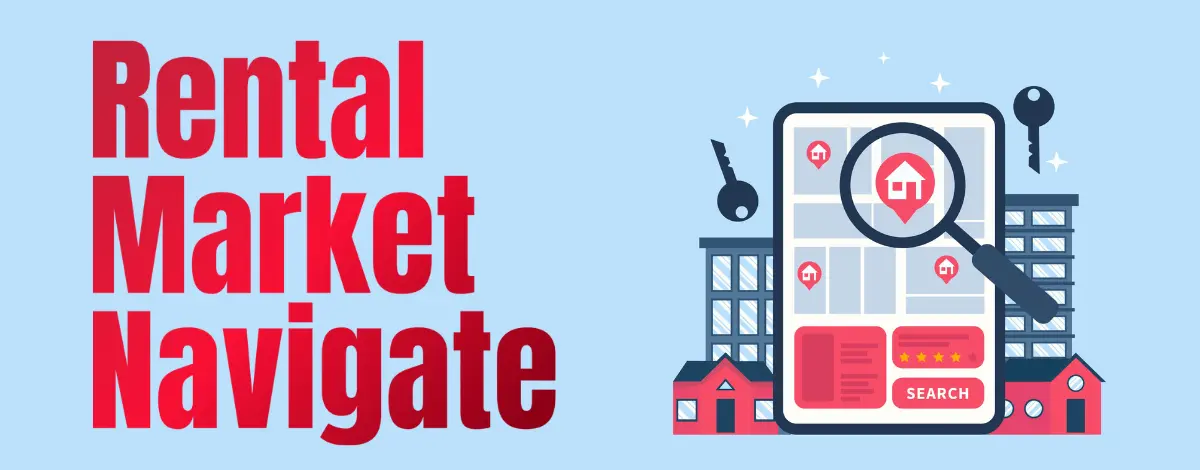It can frequently seem like a complex network when navigating the real estate market. There are innumerable things to think about, choices to create, and vocabulary to learn. One phrase that comes up a lot is “freehold.” However, what does it refer to to be a freehold property owner? Why does it appeal to certain individuals more than other forms of property ownership?
We shall clarify the meaning of freehold property ownership in this extensive guide. We’ll go over the benefits and drawbacks, explain the purchasing procedure, and provide you with a road map so you can decide if investing in a freehold property is the best course of action for you. This book intends to provide the information you need, regardless of your experience as an investor or first-time buyer, so you can make wise decisions as you proceed toward property ownership. Together, let’s explore the realm of freehold real estate and sort through its complexities.
Freehold property: What is it?
A property that is owned freehold is one in which the owner fully and solely owns the building as well as the land it is situated on.
The word “freehold” designates a property that is “free from hold,” which implies that there is little time restriction on ownership or landlord who may reclaim the asset after a predetermined amount of time. If the owner complies with the local rules and regulations, they are free to sell, refurbish, rent it out, or leave it to their heirs.
Freehold Land: What Is It?
A piece of property that has all unrestricted rights belongs to its owner, and you can refer to it as freehold land. The freehold land belongs to the owner in its entirety, including any houses or other structures that are located there.
Recognizing Rights of Ownership in Freehold Property:
A freehold property gives its owner a great deal of control over both the building and the surrounding area. The following are the main components of ownership rights under freehold land:
Total Command of the Asset:
You have the sole right to the building and the land it is built on if you own a freehold property. It implies that you are free to decide how to utilize the property, including whether to renovate, add on, or make any other changes.
Continued Ownership:
You have perpetual possession of the property as the owner of a freehold. You can retain the property for as long as you like because there is no lease term limit to worry about. It’s also something you can pass on to the next generations.
Ownership Transfer:
You have total authority to sell the property if you so want. You can see the flexibility option to assign ownership rights to another individual, particularly in situations when selling or transferring the property is involved.
Letting Go of the Freehold Asset:
Renting Out: When you so like, you can also lease a freehold property that you own. This is a great way to make money from rentals.
No Ground Rents: Freehold homes are exempt from the annual “ground rent” that leasehold properties often require tenants to pay to the landlord.
Making Insurance and Repair Decisions:
You are responsible for ensuring the construction is regularly inspected and protected as a freeholder. You can select your insurance company and have discretion over the manner and timing of repairs.
Also Read: Everything Know About RERA Approval And Registration
The Part of Owning a Freehold Property That Is Legal?
There are various legal facets related to owning a freehold property that you should be aware of, such as:
1. Title Deed:
The most important document is the title deed, which certifies that the freeholder is the owner of the property and the building on it. The title deed contains crucial details regarding the land, such as:
You can get a thorough description of the property, together with information on its precise location, size, and layout, among other things.
The title deed has the property owner’s complete name and contact information. If the asset has been offered, the title deed will list all previous owners’ information along with the dates of each transfer.
The title document will list any liens, loans, concessions, and other encumbrances that may be attached to the property.
The title document may also contain the property’s current purchase cost.
Information about the legal procedure. You followed to move the property from the former owner to the present one. It is comprised of the title deed.
2. Registration of property:
The legal procedure of property registration is registering the control of an area of real estate, such as a structure or plot of land, in public documents. This is usually done through a government agency, such as the county clerk’s office or local land registry. The procedure entails:
Confirming the title of a property is important to avoid any potential legal issues or penalties.
Making a sale agreement so the buyer and seller draft a contract specifying the terms and circumstances of the sale of real estate.
Acquiring an encumbrance certificate from the sub-registrar’s office to verify the property is free of any outstanding legal debts.
Settling the required registration costs and stamp duty, which is a levy on real estate transactions.
Drafting the sale deed, an official record that proves the transfer of ownership from the seller to the buyer and acts as proof of the sale.
Enrolling the asset at the sub-registrar’s office in the community. With legitimate IDs, the buyer, seller, and a pair of witnesses must be available.
3. Respect for local laws and ordinances:
When owning a freehold property, one must abide by the laws and regulations of the local government on the usage, upkeep, and alterations of the property. The local rules and regulations are applicable in the following important areas:
The property must be built by municipal building laws, which regulate several aspects such as health requirements, fire protection, and structural integrity.
You can follow zoning restrictions in the area when using properties. These rules define the kind of uses that properties in particular locations have, including mixed-use, residential, and commercial.
Major alterations to the property, such as additions or new buildings, may need approval from the local planning commission.
Owners of real estate are necessary to abide by regional environmental laws. These could be guidelines for energy conservation or tree-cutting.
Local rules governing property maintenance must be followed; this may include pest treatment, building maintenance, and other tasks.
Local property taxes must be paid by property owners, and they are determined by the appraised worth of the property as well as local tax rates.
Also Read: A Comprehensive Look at the Benefits of Real Estate Investments
Important Factors Frequently Missed When Buying a Freehold Property:
To guarantee a seamless and fruitful transaction, it’s critical to pay attention to several aspects while buying a freehold property. Here are a few frequently disregarded factors that purchasers have to think about:
- It is essential to carry out a comprehensive inspection of the property. This involves examining the state of the electrical, plumbing, and structural systems as well as any possible problems like insect infestation or structural damage. Hiring an expert to examine the property can assist in locating any hidden issues.
- Check the boundaries of the property to make sure there are no invasions from nearby properties. Reliable data and the prevention of future disputes can be obtained via a border survey.
- You cannot notice additional costs on top of the buying price. Legal fees, stamp duty, registration fees, property tax changes, expenses for upkeep, and continuing expenditures like utilities and homeowners connection dues are a few examples of these.
- Look into any possible or proposed developments close to the property. This could include changes in the form of new roads, businesses, or infrastructure that could affect the value of the property or the standard of living in the neighborhood.
- Take into account any environmental factors that could have an impact on the asset, such as soil types, flood zones, and environmental danger. Knowing these elements can aid in risk assessment and insurance coverage selection.
- Examine any easements or constraints that are currently in place on the land, such as joint access, rights of way, or limitations on making changes. Comprehending this may influence the property’s future goals.
- You should think about the property’s potential for resale even if you purchase it for your use. The future value and attractiveness of the property can be influenced by variables like amenities, economic conditions, and location.
Also Read: A Full Overview of Indian Property Verification
Insurance Types for Freehold Property:
For the protection of your investment, insurance types like landlord, content, and structure insurance can be essential.
Construction-related insurance:
This insurance protects the walls, roof, and occasionally fixtures like wiring and plumbing that are part of the property’s physical structure. Typically, it offers defense against threats including burglary, storm damage, and fire.
Insurance for Content:
Appliances, gadgets, and furnishings that are personal property are covered by this coverage. It guards against loss, damage, and theft of these things.
Owner’s Insurance:
Insurance for landlords is crucial if the freehold property is rented out. It frequently includes coverage for lost rental revenue, legal fees, and property damage.
What Kind of Properties Are Not Allowed Freehold Ownership?
Certain kinds of properties aren’t allowed to be owned in freehold in India. The particular limitations and guidelines may change based on municipal and state laws.
Freehold ownership is typically not an option for properties owned by government agencies, such as defense establishments, government offices, or public infrastructure.
Freehold ownership is generally not permitted for agricultural land. Instead, it is subject to particular laws that control how agricultural land is used and owned, like tenancy laws, land ceiling laws, and prohibitions on selling agricultural land to people who aren’t farmers.
The Forest Department or other appropriate agencies are in charge of managing and safeguarding forest land. Since it is meant to be preserved for ecological and environmental reasons, it is not eligible for freehold ownership by people or organizations.
There may be limitations on freehold ownership in some very ecologically valuable places, such as swamps, coastlines, animal refuges, or protected areas, to guarantee their preservation and protection.
Due to safety factors, freehold ownership of properties in defense or border zones may have restrictions.
Advantages and disadvantages of freehold property:
Advantage:
- Owners of freehold real estate are independent and free to make decisions about their holdings.
- If you decide to sell, the property’s value may rise over time, bringing with it possible rewards.
- Since you are the only owner of the property, there are no monthly payments required to the landlord.
- Freehold properties are adaptable and may be useful for a range of uses, such as commercial, residential, or rental.
Disadvantage:
- You have full responsibility for all maintenance and related expenses as the owner.
- There is a chance that the value of your house will drop because real estate markets can be erratic.
- It is your responsibility as an owner to follow zoning regulations, construction codes, and other legal requirements.
- When you own a property, you might have to deal with disputes with the local government or your neighbors.
- Compared to leasehold houses, the initial cost of purchasing a freehold property can be higher.
There are many benefits to owning a freehold property, including complete control, possible capital growth, and no ground rent. But it also entails obligations, including maintenance and legal ones. Doing extensive research, being aware of the local real estate market, and being ready for the long-term responsibilities that come with owning a property of this kind are essential. A fulfilling investment and quality of life can result from being a conscientious and knowledgeable property owner.
Frequently Asked Questions about Freehold Property Ownership:
There are no restrictions on the owner’s ability to sell, transfer, or alter their property.
Title and property deeds are examples of legal documents that attest to the present owner’s legal ownership and the seller’s ability to transfer ownership. A legal contract that outlines the parameters of a transaction, such as the sale price and payment timeline, is the contract of sale.
Since they are constructed on developer or builder-owned land, apartments, flats, and houses cannot be regarded as freehold property.
Property Inspection, Encroachments and Boundaries, Hidden Costs, Future Development Plans, Environmental Factors, easements and restrictions, and Resale Potential. These are the factors you frequently overlook when buying a freehold property.




